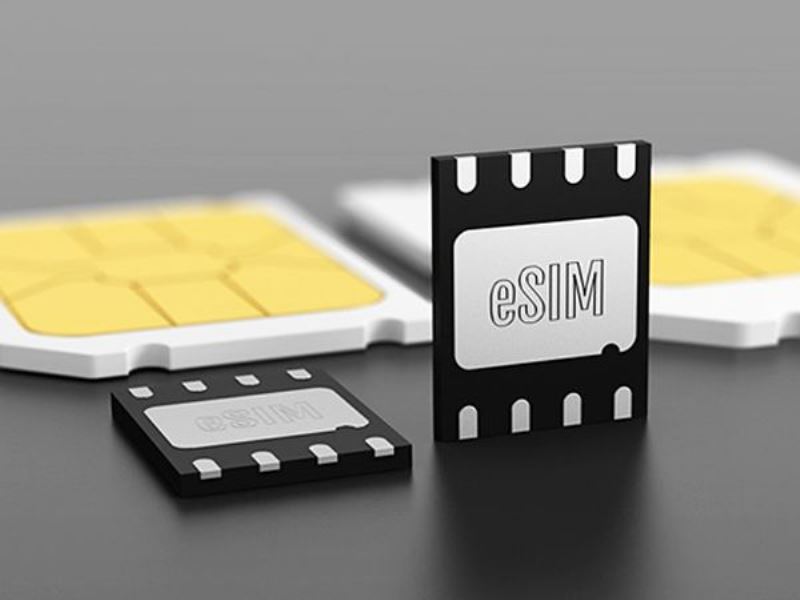By Destiny Uko
Nigeria is witnessing a subtle but significant shift in its telecommunications landscape. On May 28, emoSim, a technology-driven mobile network provider, officially launched its digital eSIM travel data service in the country. emoSim’s innovation offers a fully virtual alternative to traditional SIM cards, which require users to manually swap chips between devices or networks.
Unlike physical SIMs, emoSim’s eSIM allows users to activate mobile data simply by scanning a QR code, with affordable data bundles for local and international roaming.
A digital solution
emoSim’s launch in Nigeria, Africa’s largest mobile market, is more than a new tech offering—it’s a step towards paperless, programmable connectivity across the continent.
Already active in other regions, the company says its platform was developed with the African user in mind, addressing common challenges like high roaming fees, poor network switching flexibility, and bureaucratic SIM registration processes.
What Is an eSIM–and Why Does It Matter for Africa?
An eSIM (embedded Subscriber Identity Module) is a digital chip built into smartphones and other mobile devices to allow users activate or switch between network providers remotely without requiring a physical SIM card or visiting a telecom store
Compared with traditional SIMs, eSIMs support multiple carrier profiles, enabling users switch networks or activate travel data in seconds. This is especially important in Africa, where mobility—both digital and physical—is on the rise.
According to the 2024 GSMA Report, eSIM-enabled smartphone shipments in Sub-Saharan Africa are expected to grow by over 400% between 2023 and 2028, driven largely by urban youth, freelancers and cross-border workers.
Why eSIMs are a game-changer for Africa
From Lagos to Kigali to Cape Town, more Africans are living online—working, studying, and migrating across cities and borders. For this growing cohort, traditional SIM systems are cumbersome and expensive, demanding repeated KYC registrations.
In response, eSIMs provide remote activation, affordable roaming, improved safety and access for the undocumented. Many internally displaced persons and migrants lack formal IDs required for local SIM registration. eSIMs provide digital lifelines.
This frictionless, borderless access to mobile networks is what telecom experts call “programmable mobility,” a core feature of digital inclusion in a continent undergoing rapid urbanisation, migration and technological adoption.
emoSim’s launch aligns with Africa’s move toward paperless telecom, remote ID verification, and portable phone identities, three key pillars of the African Union’s Digital Transformation Strategy 2020–2030
It could also prompt policy shifts. Since 2021, the Nigerian Communications Commission (NCC) has been reviewing eSIM regulations, following early trials by MTN and 9mobile.
Additionally, pressure may mount to expand and formalise Nigeria’s eSIM regulatory framework, particularly around number availability, consumer protection, and data security.
A quiet revolution connectivity
By bringing frictionless, digital-first connectivity to users across Africa, emoSim’s eSIMs represent more than just a tech upgrade.
For every freelancer crossing borders, every student logging into virtual lectures, and every displaced family seeking connection without hurdles, this quiet revolution in mobile access may mark the dawn of a more inclusive mobile future for Africa.
Nigeria's telecommunications industry is experiencing a transformation with the introduction of emoSim's digital eSIM travel data service. This service offers a virtual alternative to traditional SIM cards, enabling users to activate mobile data through a QR code and access affordable roaming options. The eSIM technology supports multiple carrier profiles, simplifying network switching and travel data activation, addressing common challenges like high roaming fees and complex SIM registration processes common in Africa.
emoSim’s entry into Nigeria, Africa's largest mobile market, represents a significant step toward paperless connectivity and aligns with the continent’s digital transformation goals. eSIMs are particularly impactful for urban youth, freelancers, and cross-border workers in Africa, providing remote activation and affordable roaming, while also aiding undocumented individuals with mobile access without the need for formal IDs. This innovation supports "programmable mobility"—a feature of digital inclusion essential for Africa's rapid urbanization and technological adoption.
The success of eSIMs could prompt significant policy changes in Nigeria, where the regulatory framework is under review by authorities such as the Nigerian Communications Commission. This shift might lead to formal guidelines on number availability and consumer data protection. As a driving force for digital mobility, emoSim's eSIMs offer a more inclusive mobile experience, empowering users across Africa with seamless connectivity that transcends geographical and bureaucratic barriers.






